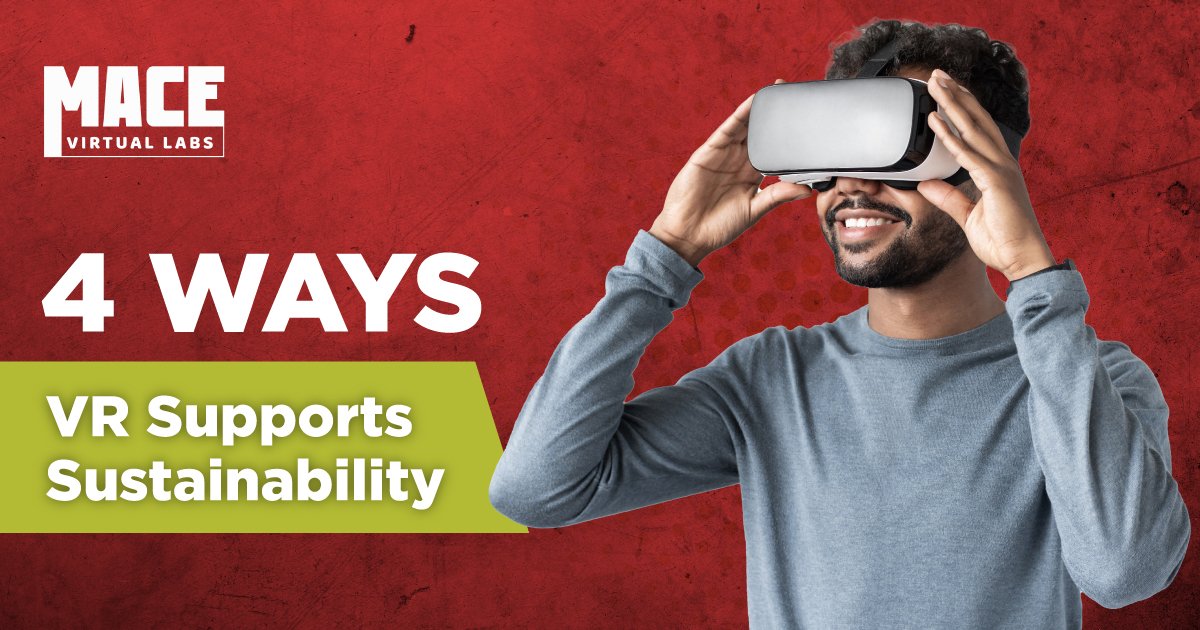4 Ways VR Supports Sustainability
While virtual reality technology is often used for entertainment, it has also had a positive impact in the fields of business and education. With VR headsets and accessories, offices have started holding immersive online meetings and unlocked new possibilities for employee training. Meanwhile, students are using VR to explore distant galaxies and the ocean’s depths—all without leaving school.
A perhaps unintentional but exciting additional benefit is that VR supports sustainability. Here’s how.
1. Decreasing Emissions
Large businesses could not avoid expensive, time-consuming travel when holding important meetings in the past. That’s still the case today–despite the popularity of video conferencing, workers in the US take about 1.3 million business trips daily. But the immersion provided by VR could change that, as it gives employees the experience of attending a real-world meeting without the inconveniences.
Along with the other drawbacks associated with international travel, it comes with a severe impact in terms of emissions. Companies can supercharge their environmental efforts by reducing their reliance on physical meetings.
VR’s effects on emissions may be most noticeable in the corporate world, but they don’t stop there. Any type of travel involving a vehicle has some impact on the environment. However, when you can get experiences that are just as good (or even better) in the metaverse, you won’t need to travel as much as you did before.
2. Education on Climate Change
Climate change is easily one of the most critical issues of our time, but it can also feel somewhat abstract. Most people understand threats like melting icebergs and rising water levels intellectually, but actually picturing these scenarios is another story. That might be why a 2019 study found that a median of 20% of people think of global warming as a “minor threat” while another 9% felt it was not a threat at all.
VR’s ability to let users experience another world could be the perfect solution to this problem. To highlight one example, Stanford University’s Ocean Acidification Experience allows participants to see the effects of climate change on oceans–including the deaths of sea creatures–for themselves. The experience has proven to be highly effective. In fact, users’ test scores on climate change knowledge increased by over 100% after their virtual dive.
As of 2022, VR equipment has become more accessible than ever to the average person. With that, users can explore resources like “This is Climate Change,” a four-part VR docuseries dealing with the impacts of global warming. And the simpler it is to access these educational opportunities, the better. Studies show that VR-based climate education can encourage participants to take positive environmental action.
3. Save on Material and Energy Waste
Did you know that VR can help reduce the environmental impact of construction before it even begins? These days, professionals can virtually explore the floor plans of structures they plan to build well before they break ground in real life. By doing so, they have a chance to catch errors or limitations early on and find solutions. That, in turn, reduces the likelihood of material and energy waste during the construction process.
VR headsets could help the world improve its approach to waste management, too. Companies have tested new Internet of Things-powered automated waste management strategies in virtual reality, and researchers have explored the possibility of using VR to teach people about recycling.
4. Recycled Hardware
Of course, the process of manufacturing electronics–VR headsets included–has its own impact on the ecosystem. While we cannot eliminate this impact, we can take steps to mitigate it significantly. In addition to the waste management benefits listed above, you can recycle your VR equipment itself.
When technological advancements catch up to your organization’s VR fleet, sending this equipment to a landfill isn’t ideal from a sustainability-based point of view. Instead, you’ll want to ship your headsets and accessories back to where you got them–and where they can be recycled safely. That’s why it’s important to choose the right partner.
MACE Virtual Labs is a trusted supplier of VR headsets and accessories. They help enterprises and schools implement AR and VR programs and are available for customer support throughout the experience. To create a more holistic service MACE Virtual Labs also offers full fleet management and a recycling program for used VR equipment.
Explore MACE VL’s hardware and software product lineup online, and get in touch when you’re ready to start building your sustainable VR fleet!

